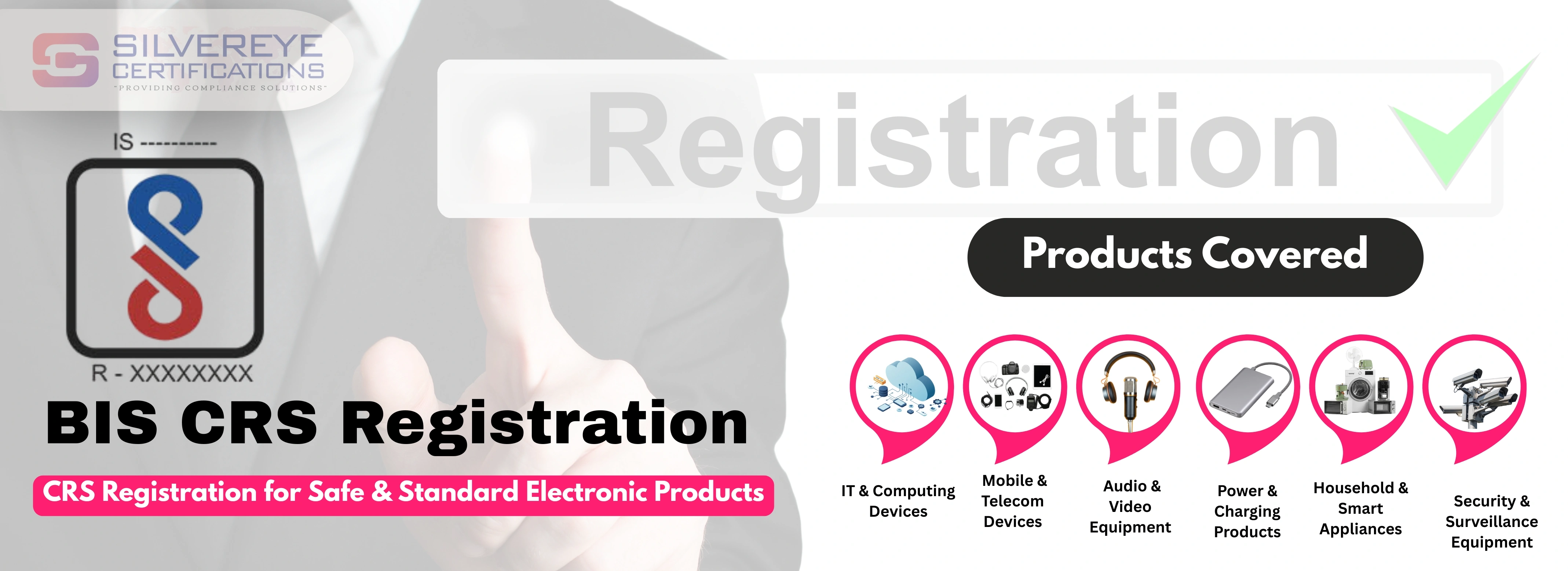The CRS certification is not required for all electronic products, but the ones that fall under the Compulsory Registration Order (CRO) have to be registered with the Bureau of Indian Standards (BIS). The list of products includes laptops, power banks, LED modules, capacitors, resistors, speakers, and smartwatches, which also come under the CRS list and need to get BIS CRS Registration done before they can be sold in India.






